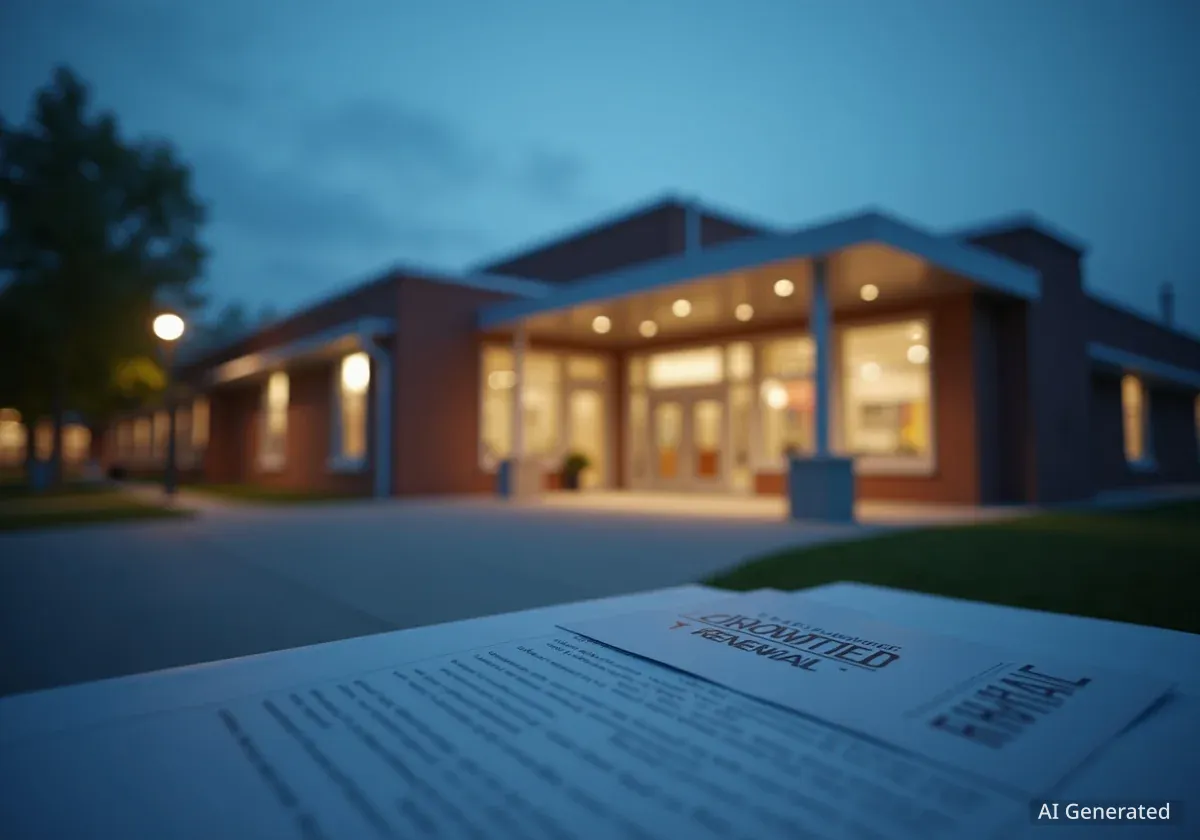The Alabama State Charter Commission has voted to renew the contract for Magic City Acceptance Academy (MCAA), ensuring the school can continue operations for another five years. This decision follows a period of scrutiny regarding the school's adherence to Alabama's new anti-DEI law, which prohibits certain diversity and inclusion programs in public educational institutions.
MCAA, which opened in 2021, aims to provide a supportive learning environment for LGBTQ+ students and other at-risk youth in the Birmingham area. The renewal comes with a specific condition: the school must maintain strict compliance with Alabama laws, particularly the state's "divisive concepts" legislation.
Key Takeaways
- Magic City Acceptance Academy received a five-year charter renewal.
- The renewal is conditional on strict adherence to Alabama's anti-DEI law.
- School officials made changes to decor and mission statement to comply.
- MCAA plans to expand facilities and serve up to 500 students.
Charter Renewal Amidst Scrutiny
The Alabama State Charter Commission made its decision on Wednesday, allowing Magic City Acceptance Academy to operate for an additional five years. This vote followed intense debate and a period where the school's contract faced potential termination. Concerns arose earlier this spring over alleged violations of Alabama's anti-DEI law, officially known as Alabama Code 41-1-90.
This law prohibits the promotion of "divisive concepts" and certain diversity, equity, and inclusion programming in public schools and colleges. The scrutiny focused on elements within MCAA, including a rainbow mural and a map that labeled the Gulf of Mexico.
"I'll say the thing that we're all thinking," stated Karen Musgrove, MCAA's CEO, when asked by a commissioner to address the concerns. "We have had rainbows in our building because we are affirming to all people, and at some point our mission statement included a segment that said 'We are affirming to LGBTQ people,' but we have taken that out."
Musgrove emphasized the school's commitment to all students. "We’re affirming to all people. We’re affirming to our Black students. We’re affirming to our Hispanic students. We’re affirming to our LGBTQ students, which are in every school in the state."
Quick Fact
Magic City Acceptance Academy first opened its doors in 2021, aiming to support a diverse student population, including LGBTQ+ youth.
Impact on Students and Community
Magic City Acceptance Academy was founded with the mission to create a safe and inclusive educational environment. Students and staff have consistently reported building a strong, welcoming community within the Birmingham-area school. This sense of belonging was a central point in the arguments for the school's renewal.
During the commission's hearing, one parent shared how MCAA transformed her son's life. She explained that after enrolling at the academy, her son's academic performance improved significantly. He stopped skipping classes, vaping, and engaging in conflicts. He is now excelling in college-level courses, demonstrating the school's positive impact.
"Renewing Magic City’s charter means continuing to change lives like my son’s," the parent pleaded to the commissioners. "It means giving more kids the chance to discover their potential and their purpose."
The commission's decision was not without conditions. Lane Knight, the commission’s lawyer, stated that MCAA must maintain "strict adherence throughout its shorter term to Alabama laws, specifically including, without limitation, Alabama Code 41-1-90." Failure to comply could lead to sanctions against the school.
Background Information
Alabama's "divisive concepts" law, Alabama Code 41-1-90, seeks to restrict certain discussions and programs related to diversity, equity, and inclusion in public educational settings. This law has been a point of contention for various schools and organizations in the state.
Compliance Efforts and Recent Changes
School officials at MCAA proactively addressed the concerns raised by the state charter commission and external reports. According to emails obtained by AL.com, the school contacted the commission in early 2025, shortly after an article by 1819 News claimed MCAA was violating the law.
Karen Musgrove reached out to Logan Searcy, the commission’s director, on January 24 for guidance. A week later, she sent Searcy proposed changes to the school’s mission statement. Between February and March, 1819 News published several articles about the school, leading to threats of funding cuts and calls for a state investigation from Republican lawmakers.
In response, the commission intensified its monitoring. Douglas Riley, the commission’s financial specialist, wrote to Principal Patton Furman on February 4, stating, "The goal here is to report our diligence in monitoring the school to hopefully alleviate concerns at renewal time."
Visible and Policy Adjustments
MCAA leaders implemented several changes. Before the renewal vote, Musgrove confirmed that the school had painted over rainbow colors and designs. They also replaced maps with new ones that featured a "Gulf of America" label. The school revised its logo and conducted reviews of textbooks and other documents to ensure compliance.
"We don’t see ourselves as being divisive," Musgrove explained. "Because we did exactly what was asked of us."
The commission sent a letter to the school in early February, noting that it had received "various reports" alleging violations of the new law. Searcy and commission member Cynthia McCarty visited the school on February 20. On March 6, Musgrove sent a detailed response to the commission, outlining the steps taken and noting positive feedback from the commission's visits.
Key Action
School officials revised their mission statement, painted over rainbow decor, and replaced maps to meet compliance requirements.
Future Plans and Expansion
While the commission initially suggested a shorter, three-year contract for MCAA, they ultimately approved a standard five-year extension after further discussion. This decision provides the school with stability and allows for future growth.
With the charter renewed, MCAA officials plan to immediately begin work on a new building. This expansion will include a large theater, a dedicated band room, and enhanced mental health resources for students. The school aims to eventually serve up to 500 students, significantly increasing its current capacity.
"We are going to make you proud," Musgrove assured the commission. "We’re doing amazing things, and we want you to be a part of that relationship."
The commission member Charles Knight supported the renewal, stating, "They’ve got the financial support, they’ve got a good program, they’ve got the leadership. And again, we all agree that we’re trying to create environments where students are educated, and obviously they’re doing a good job of that."
In addition to MCAA, the commission also approved a five-year extension for LEAD Academy in Montgomery and a three-year extension for Breakthrough Academy in Perry County, indicating continued support for charter schools across the state.
Charter School Stability
It is uncommon for an Alabama charter school to close after its initial contract is granted. When concerns arise about a school's viability, the commission typically issues a shorter two- or three-year contract rather than outright closure.





